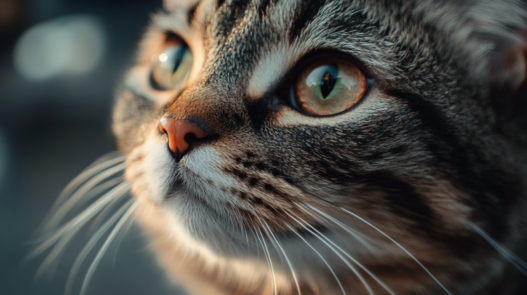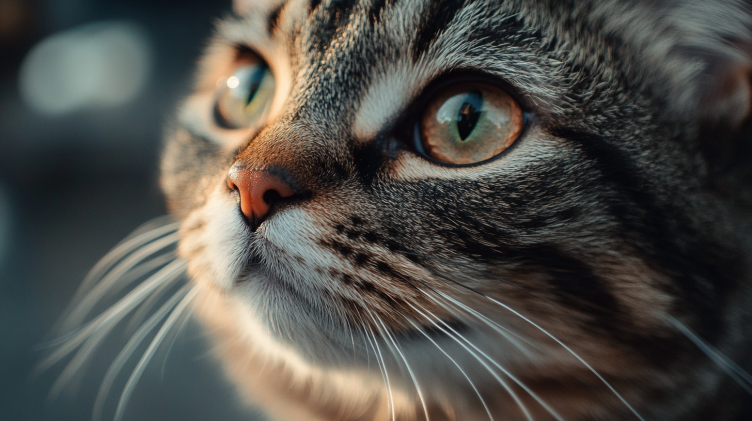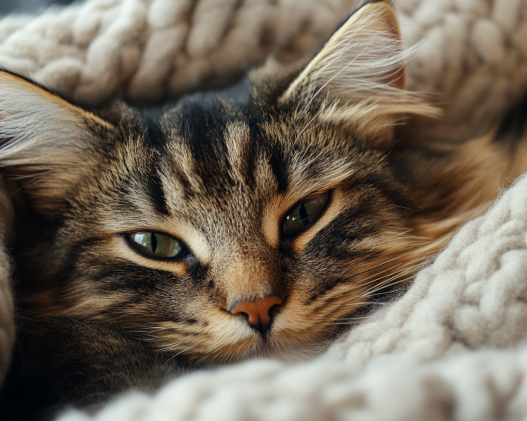Do cats have an exceptional sense of smell that enables them to catch mice? Absolutely! Cats’ noses are packed with numerous receptors that allow them to pick up a wide variety of scents. But the story of how they hunt is far more intricate. Cats’ sense of smell is just one of many tools they use to become skilled hunters. Let’s dive into the details of how cats use their keen olfactory senses to track down prey.
Feline Sense of Smell: 14 Times Stronger Than Humans
A cat’s sense of smell is 14 times more sensitive than that of humans, thanks to around 70,000 olfactory receptors in their noses, compared to the mere 20,000 in humans. This heightened sensitivity means that cats can detect even the faintest odors, such as distinguishing between fresh water and slightly salty water—something humans can’t perceive. This sense is essential for many aspects of a cat’s life, from identifying food to locating potential threats.
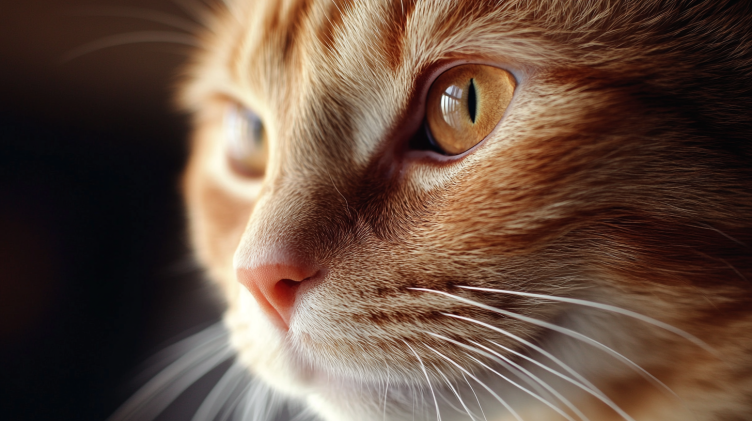
From the moment kittens are born, they depend on their sense of smell to find their mother’s milk. As they grow, this ability helps them detect food, other animals, and even possible dangers in their surroundings. When it comes to hunting, cats’ keen noses are key to tracking down their prey.
Jacobsen’s Organ: Enhancing Feline Hunting Power
One of the most fascinating aspects of a cat’s sensory toolkit is Jacobsen’s organ (also known as the vomeronasal organ), a specialized structure located in the roof of their mouth. This organ allows cats to “taste” the smells in their environment, providing them with additional information. When you see a cat opening its mouth slightly after sniffing something, it’s using Jacobsen’s organ to enhance its olfactory abilities. This organ further amplifies their scent-detection skills, helping them identify things like a mouse’s scent trail.
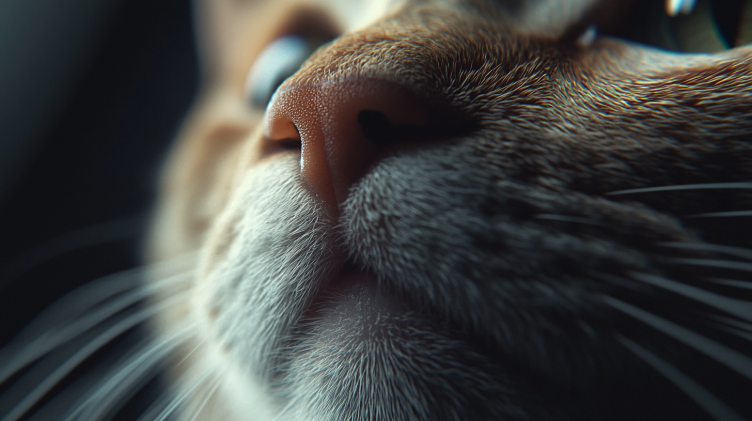
In addition to their remarkable sense of smell, cats rely on other sensory abilities to maximize their hunting potential.
The Importance of Hearing and Vision in Hunting
Cats have highly developed vision, especially in low-light conditions. This ability is essential for nocturnal hunting, allowing cats to catch prey in the dark. But their hearing is just as impressive. Cats can hear high-pitched sounds, such as a mouse’s movements, which are beyond the range of human hearing. This acute sense of hearing helps them locate prey that might be hiding or attempting to escape.
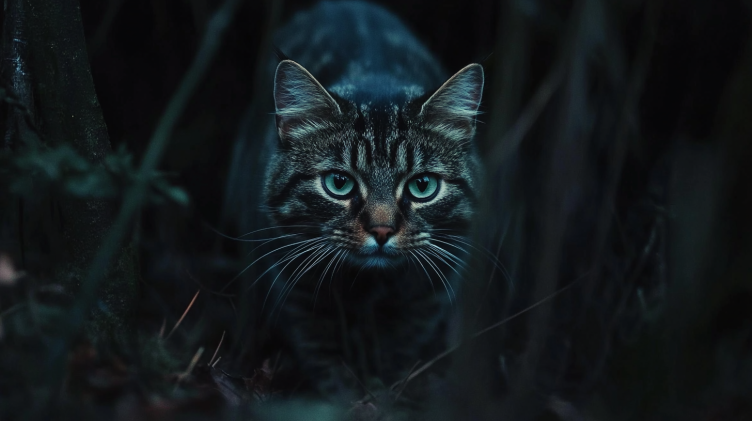
Whiskers: Sensitivity to the Smallest Movements
One of a cat’s most important hunting tools is its whiskers. These sensitive hairs are highly attuned to detecting even the smallest movements in the air. A mouse that scurries across the floor might go unnoticed by humans, but a cat’s whiskers can detect its every move, even in total darkness. This heightened sensitivity, combined with their sharp vision and hearing, makes cats exceptional hunters.
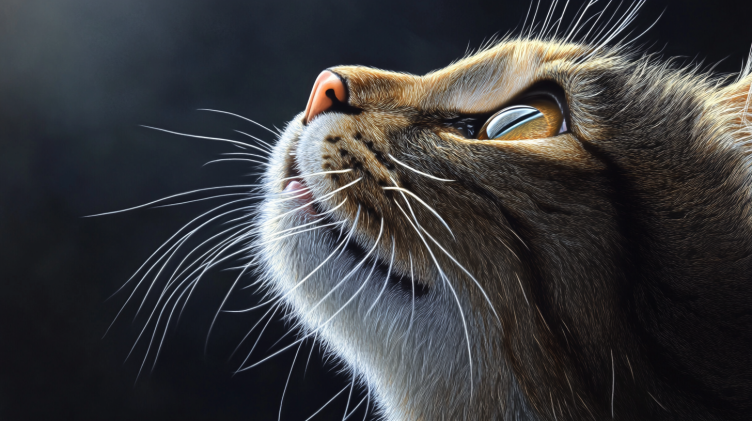
The Complete Hunting System: More Than Just Their Nose
While a cat’s sense of smell is crucial to its hunting abilities, it is far from the only tool they use. Cats have developed a sophisticated hunting system that combines multiple senses and instincts to create an efficient predator:
- Keen sense of smell
- Superb hearing
- Enhanced taste (via Jacobsen’s organ)
- Highly sensitive whiskers
- Instinctive chasing behavior
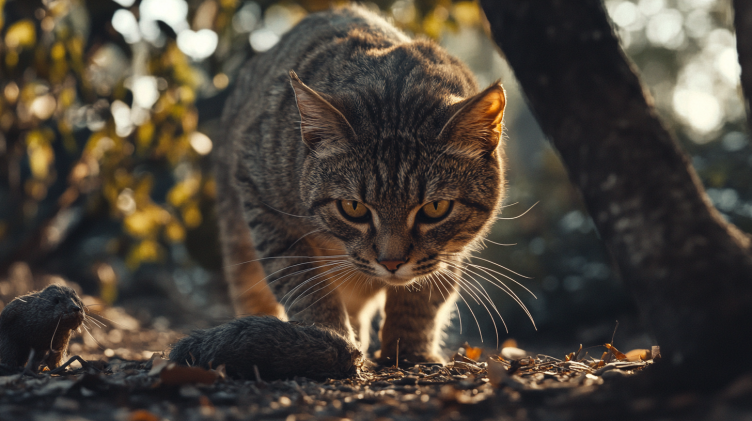
These abilities work together, making cats one of nature’s most proficient hunters.
Conclusion: Cats’ Hunting Abilities
In conclusion, cats are incredibly skilled hunters, and their sense of smell plays a pivotal role in their ability to track and catch prey. However, it is their combination of keen senses—smell, sight, hearing, and whiskers—that makes them near-perfect predators. Together, these abilities help them track down mice and other small creatures, establishing them as one of the most efficient predators in the animal kingdom.







